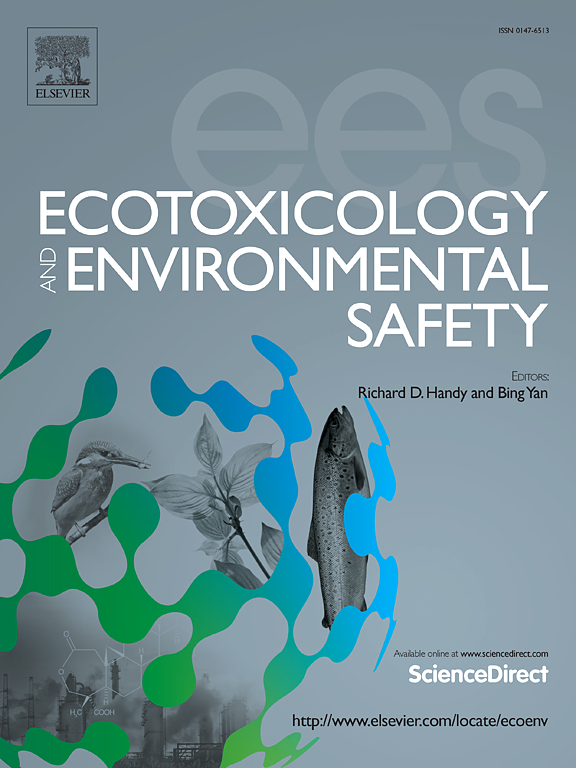Aquifer pollution by metal-antibiotic complexes: Origins, transport dynamics, and ecological impacts
IF 6.2
2区 环境科学与生态学
Q1 ENVIRONMENTAL SCIENCES
引用次数: 0
Abstract
Aquifer pollution by metal-antibiotic complexes is a rising environmental and public health concern owing to their enhanced mobility and persistence in groundwater. The purpose of this review is to examine the origins, transport dynamics, and ecological impacts of complexes formed through interactions between metal ions and antibiotics in agricultural runoff, pharmaceutical effluents, and wastewater discharge. Metal-antibiotic complexes are more resistant to degradation and are more soluble than their components. This complicates the conventional water purification efforts. These complexes disrupt microbial ecosystems, facilitate the spread of antibiotic-resistance genes, and negatively affect aquatic organisms. The entry of pollutants into drinking water sources poses notable health risks, including chronic exposure to contaminants and the emergence of antibiotic-resistant pathogens. This review emphasizes both preventative and remedial strategies to mitigate these impacts. Preventative measures emphasize the regulation of antibiotic and metal use in agriculture and industry and promote green chemistry alternatives. Remediation approaches include advanced treatment technologies such as membrane filtration, oxidation, and bioremediation. Integrated management practices and ongoing monitoring were discussed to address this complex issue. To protect water quality and public health, metal-antibiotic complexes in aquifers require stringent regulatory measures, innovative treatment solutions, and heightened public awareness. This review highlights the importance of coordinated efforts to prevent and remediate the emerging pollution problem.
金属-抗生素复合物对含水层的污染:起源、迁移动力学和生态影响。
由于金属-抗生素复合物在地下水中的流动性和持久性增强,其对含水层的污染日益引起环境和公共健康的关注。本综述旨在研究农业径流、制药废水和废水排放中金属离子与抗生素相互作用形成的复合物的来源、迁移动力学和生态影响。金属抗生素复合物比其成分更耐降解,溶解度更高。这使得传统的水净化工作变得复杂。这些复合物会破坏微生物生态系统,促进抗生素抗性基因的传播,并对水生生物产生负面影响。污染物进入饮用水源会带来显著的健康风险,包括长期接触污染物和抗生素病原体的出现。本综述强调了减轻这些影响的预防和补救策略。预防措施强调对农业和工业中抗生素和金属的使用进行监管,并推广绿色化学替代品。补救方法包括膜过滤、氧化和生物修复等先进处理技术。会议还讨论了解决这一复杂问题的综合管理方法和持续监测。为了保护水质和公众健康,含水层中的金属-抗生素复合物需要严格的监管措施、创新的处理方案和更高的公众意识。本综述强调了协调努力预防和补救新出现的污染问题的重要性。
本文章由计算机程序翻译,如有差异,请以英文原文为准。
求助全文
约1分钟内获得全文
求助全文
来源期刊
CiteScore
12.10
自引率
5.90%
发文量
1234
审稿时长
88 days
期刊介绍:
Ecotoxicology and Environmental Safety is a multi-disciplinary journal that focuses on understanding the exposure and effects of environmental contamination on organisms including human health. The scope of the journal covers three main themes. The topics within these themes, indicated below, include (but are not limited to) the following: Ecotoxicology、Environmental Chemistry、Environmental Safety etc.

 求助内容:
求助内容: 应助结果提醒方式:
应助结果提醒方式:


